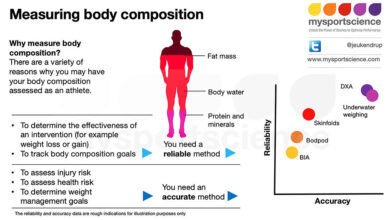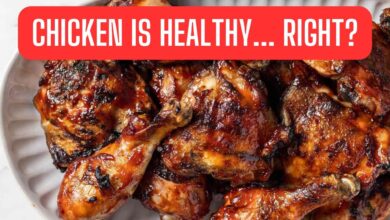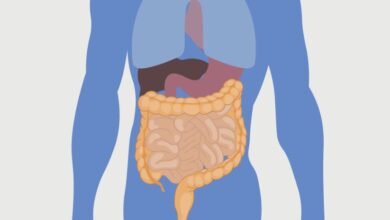
Supplments that claim to lower cholesterol can cause liver damage – Supplements that claim to lower cholesterol can cause liver damage, a serious health concern that often goes unnoticed. Many people turn to these supplements hoping for quick results, but the potential for liver complications is a crucial factor to consider. This blog post explores the relationship between these supplements and liver damage, including the types of supplements involved, the mechanisms of damage, risk factors, symptoms, scientific evidence, prevention strategies, treatment options, and public health implications.
Understanding the potential risks associated with cholesterol-lowering supplements is paramount. This post delves into the science behind liver damage, providing clear and accessible information for anyone considering these products. We’ll cover everything from the common symptoms to the importance of seeking professional medical advice.
Introduction to Cholesterol-Lowering Supplements and Liver Damage
Cholesterol-lowering supplements, while potentially beneficial for some individuals, can pose a significant risk to liver health. The liver is a crucial organ responsible for filtering toxins from the blood, and certain supplements can exert a damaging effect on its delicate structure. Understanding the connection between these supplements and potential liver damage is vital for informed decision-making regarding their use.While some cholesterol-lowering supplements may be effective in reducing cholesterol levels, the risk of liver injury must be considered alongside their potential benefits.
It is important to consult with a healthcare professional before starting any new supplement regimen, especially if you have existing liver conditions or are taking other medications.
Common Cholesterol-Lowering Supplements Linked to Liver Damage
Many dietary supplements claim to lower cholesterol, but not all are created equal. Some are more prone to causing liver issues than others. Common examples include herbal remedies, plant extracts, and certain vitamins.
Mechanisms of Liver Damage by Cholesterol-Lowering Supplements
Several mechanisms can explain how these supplements can cause liver damage. Direct toxicity, where the supplement itself is harmful to liver cells, is one possibility. Another mechanism is through the induction of oxidative stress, where harmful molecules damage liver cells. Furthermore, some supplements can interfere with the liver’s normal detoxification processes, leading to a buildup of harmful substances.
Finally, drug interactions can exacerbate liver damage.
Table of Supplements, Potential Mechanisms, and Evidence
| Supplement Type | Potential Liver Damage Mechanism | Supporting Evidence |
|---|---|---|
| Herbal remedies (e.g., some types of ginseng, kava kava) | Direct toxicity, induction of oxidative stress, interference with detoxification pathways. | Studies have shown that certain herbal remedies can cause elevated liver enzymes, indicating potential liver damage in some individuals. Specific cases of liver failure have been reported in association with kava kava use. |
| Plant extracts (e.g., some types of artichoke extracts, or specific types of garlic) | Direct toxicity, drug interactions. | Some studies suggest that certain plant extracts may induce liver damage, particularly when taken in high doses or in combination with other medications. |
| Vitamins (e.g., high doses of Vitamin A) | Direct toxicity, particularly with high doses. | Excessive intake of Vitamin A, a fat-soluble vitamin, is known to cause liver damage, specifically in individuals with pre-existing liver conditions or those consuming high doses for extended periods. |
Identifying Risk Factors for Liver Damage from Supplements
Supplement use, while often intended to improve health, can sometimes lead to unexpected complications. This is particularly true for cholesterol-lowering supplements, which, despite their potential benefits, can pose a significant risk to liver health if not used responsibly. Understanding the factors that increase vulnerability to liver damage from these supplements is crucial for informed decision-making and safe consumption.Understanding the factors that increase an individual’s susceptibility to liver damage from cholesterol-lowering supplements is paramount.
Many individuals may not realize the potential risks associated with certain supplements, leading to adverse effects if used improperly. This article delves into specific risk factors and demographics that make some individuals more prone to liver complications, emphasizing the importance of pre-existing liver conditions and responsible supplement use.
Pre-existing Liver Conditions
Pre-existing liver conditions significantly increase the risk of liver damage from supplements. Conditions like hepatitis, cirrhosis, or fatty liver disease already compromise the liver’s ability to process substances. Supplement use can exacerbate these conditions, potentially leading to more severe damage. Individuals with a history of liver problems should exercise extreme caution when considering any supplement, especially those with a known potential for liver toxicity.
Consultation with a healthcare professional is essential to assess the risks and benefits of any supplement, especially if pre-existing liver conditions are present.
It’s crazy how some supplements promise to fix everything, like lower cholesterol, but can actually harm your liver. Speaking of potential health risks, did you know that hair dyes and hair straighteners might increase breast cancer risk? Check out this article to learn more: hair dyes and hair straighteners increase breast cancer risk. So, while those cholesterol-lowering supplements might seem like a quick fix, it’s always best to be cautious and talk to a doctor before taking anything new, especially when your health is at stake.
Demographics at Higher Risk
Certain demographics are inherently more vulnerable to the negative effects of supplements. Age, for instance, can influence liver function. Older adults often experience a decline in liver function, making them more susceptible to the damaging effects of supplements. Additionally, individuals with a history of excessive alcohol consumption are at a higher risk. Alcohol significantly impacts liver function, and combining it with supplement use can compound the risk of liver damage.
It is critical to recognize these factors when evaluating potential risks.
Other Risk Factors
Other factors contribute to increased susceptibility to liver damage from supplements. A history of certain medications can interact with supplements, leading to liver problems. Medications like statins, often prescribed to manage cholesterol, can interact with supplements and intensify the risk of liver damage. Similarly, those with a history of medication-induced liver injury are at increased risk. The presence of pre-existing conditions like diabetes or high blood pressure should also be considered when assessing the potential risks associated with supplements.
Comparison of Risk Factors and Potential Impact on Liver Health, Supplments that claim to lower cholesterol can cause liver damage
| Risk Factor | Potential Impact on Liver Health |
|---|---|
| Pre-existing liver conditions (hepatitis, cirrhosis, fatty liver) | Increased risk of liver damage and exacerbation of existing conditions. |
| Advanced age | Reduced liver function and increased susceptibility to liver injury. |
| Excessive alcohol consumption | Compromised liver function, increasing the risk of adverse interactions with supplements. |
| Certain medications (e.g., statins) | Potential for drug interactions and increased risk of liver damage when combined with supplements. |
| History of medication-induced liver injury | Higher risk of developing liver damage from supplements due to the liver’s sensitivity to various substances. |
| Diabetes or high blood pressure | Potentially increased vulnerability to adverse effects from supplements, as these conditions can influence overall health. |
Symptoms and Diagnosis of Liver Damage
Knowing the potential symptoms and diagnostic methods for liver damage from supplements is crucial for early intervention. Early detection significantly improves the chances of successful treatment and minimizes long-term complications. This knowledge empowers individuals to recognize warning signs and seek medical attention promptly.Understanding the spectrum of symptoms and the specific diagnostic tools used to identify liver damage is vital.
A thorough understanding of these aspects is essential to ensure prompt and effective management of any liver issues. The severity of liver damage can vary significantly, making early diagnosis all the more critical.
Common Symptoms of Liver Damage
Early signs of liver damage may be subtle or even absent in the initial stages. Recognizing these symptoms is key to seeking timely medical intervention. Common symptoms can include fatigue, loss of appetite, nausea, vomiting, abdominal pain, jaundice (yellowing of the skin and eyes), dark urine, pale stools, and swelling in the legs or abdomen. These symptoms may not always be directly linked to supplement use and could be related to other factors.
However, a history of supplement use should be considered by the healthcare provider.
Diagnostic Methods for Liver Damage
Various diagnostic methods are employed to assess liver function and identify potential damage. These methods are critical in differentiating between liver damage and other conditions. A thorough medical history, including details about supplement use, is the first step. This is followed by physical examination to assess for any signs of liver enlargement or tenderness.
Liver Function Tests (LFTs)
Liver function tests (LFTs) are blood tests that measure the levels of enzymes and proteins produced by the liver. Elevated levels of these markers can indicate liver damage or dysfunction. The tests measure various enzymes and proteins, like alanine aminotransferase (ALT), aspartate aminotransferase (AST), alkaline phosphatase (ALP), and bilirubin. An elevated ALT, for instance, might suggest inflammation or damage within the liver.
Imaging Techniques
Imaging techniques like ultrasound, CT scans, or MRI scans can provide detailed images of the liver, aiding in the visualization of any structural abnormalities or lesions. These scans help assess the size, shape, and texture of the liver, enabling doctors to pinpoint the location and extent of potential damage.
Biopsy
A liver biopsy, a procedure involving the removal of a small tissue sample from the liver, is a definitive diagnostic tool. A biopsy is usually reserved for cases where other tests are inconclusive or suggest severe liver damage. It allows for a microscopic examination of the liver tissue, enabling a precise diagnosis of the type and extent of liver damage.
Importance of Timely Diagnosis and Intervention
Early diagnosis and intervention are critical in managing liver damage from supplements. Prompt medical attention minimizes the risk of long-term complications and improves the chances of successful treatment. Delayed diagnosis and intervention can lead to irreversible liver damage.
Symptoms, Potential Causes, and Diagnostic Tests
| Symptom | Potential Causes (including supplement use) | Diagnostic Tests |
|---|---|---|
| Fatigue | Various conditions, including liver damage, infection, and other illnesses. Supplement use could be a contributing factor. | Comprehensive blood tests, including LFTs. |
| Nausea and vomiting | Gastrointestinal issues, liver damage, infections, or reactions to supplements. | LFTs, ultrasound. |
| Jaundice | Liver disease, gallstones, or other conditions. Supplement use could be a contributing factor. | LFTs, bilirubin tests, ultrasound. |
| Abdominal pain | Various conditions, including liver inflammation, gallstones, or infections. Supplement use could be a contributing factor. | LFTs, ultrasound, CT scan. |
| Dark urine, pale stools | Liver disease, gallstones, or other conditions. | LFTs, bilirubin tests, urine tests. |
Strategies for Preventing Liver Damage from Supplements: Supplments That Claim To Lower Cholesterol Can Cause Liver Damage
Protecting your liver from potential damage caused by cholesterol-lowering supplements requires a proactive and informed approach. Supplement use, while sometimes beneficial, can carry hidden risks, especially when it comes to liver health. Taking the necessary precautions and understanding the potential dangers is crucial for responsible supplement use.
Importance of Professional Consultation
Consulting a healthcare professional before starting any cholesterol-lowering supplement regimen is paramount. Doctors possess the expertise to assess your individual health status, including pre-existing conditions and potential drug interactions. They can accurately evaluate your cholesterol levels and recommend the most suitable course of action, whether it involves dietary changes, medication, or a combination of approaches. This personalized assessment ensures that any supplement regimen aligns with your specific needs and minimizes potential risks.
Furthermore, a healthcare professional can provide critical guidance on potential side effects and monitor your progress.
Appropriate Dosage and Duration
Adhering to the recommended dosage and duration of supplement use is essential. Exceeding the prescribed dosage can significantly increase the risk of liver damage. Furthermore, prolonged use of supplements without a break can also contribute to potential issues. Following the prescribed guidelines prevents exceeding the safe limits and helps mitigate the risk of adverse effects. It’s crucial to understand that these guidelines are tailored to individual needs and may vary based on factors like your overall health and specific medical conditions.
Managing Pre-existing Liver Conditions
Individuals with pre-existing liver conditions, such as hepatitis or fatty liver disease, must exercise extreme caution when considering cholesterol-lowering supplements. These conditions can increase the susceptibility to liver damage from supplements. It is vital to inform your healthcare provider about any pre-existing liver conditions. A healthcare professional can then tailor a supplement regimen or alternative strategies that are safer and more appropriate for your situation.
This approach prioritizes your liver health and ensures that any potential risks are minimized.
Beware of supplements promising lower cholesterol; some can actually harm your liver. While infections, vaccinations, and even hepatitis A can impact liver health, it’s crucial to remember that certain supplements can directly cause liver damage. Understanding the risks associated with these supplements is vital, especially when considering their potential impact on overall health. For more information on how infections, vaccinations, and hepatitis A can affect your body, check out this informative article on infections vaccinations hepatitis a.
Ultimately, always consult with a doctor before starting any new supplement regimen to avoid potential liver complications.
Monitoring Liver Health During Supplement Use
Regular monitoring of liver function is crucial during supplement use. Liver function tests (LFTs) can help detect any signs of liver damage in its early stages. These tests can identify abnormalities in liver enzymes, which are indicators of potential harm. Monitoring allows for early intervention if any issues arise, preventing more severe complications. A proactive approach through regular check-ups and monitoring of LFTs minimizes the risk of complications.
Preventive Strategies Table
| Strategy | Reason | Potential Outcomes |
|---|---|---|
| Consult healthcare professional before use | Personalized assessment, identification of potential risks, and appropriate recommendations. | Reduced risk of adverse reactions, optimized treatment plans. |
| Adhere to recommended dosage and duration | Avoid exceeding safe limits and prevent prolonged exposure to potential hepatotoxic compounds. | Minimized risk of liver damage, improved safety. |
| Manage pre-existing liver conditions | Adjust supplement regimens to avoid exacerbating existing issues. | Protection of liver health, reduced risk of complications. |
| Regular monitoring of liver function | Early detection of potential liver damage through LFTs. | Early intervention, prevention of severe liver damage. |
Management of Liver Damage Caused by Supplements

Unfortunately, liver damage from supplements isn’t always easily reversible. The severity of the damage significantly impacts the treatment approach. Prompt recognition and intervention are crucial to minimizing long-term consequences. Early intervention often leads to better outcomes.Addressing liver damage from supplements requires a multifaceted approach. Treatment focuses on removing the offending agent, managing the resulting liver inflammation, and supporting the body’s natural healing processes.
A crucial initial step is halting the supplement immediately upon suspicion of a link to liver problems.
Treatment Options for Liver Damage
Identifying the specific cause of liver damage is paramount. Treatment plans are tailored to the individual’s condition, ranging from supportive care to more intensive medical interventions. The severity of the liver injury dictates the complexity of the treatment. Factors like the duration of supplement use, the dosage, and the individual’s overall health status all play a role in determining the best course of action.
Discontinuing the Supplement
Stopping the supplement immediately upon the first signs of liver damage is essential. This step is critical as it prevents further damage to the liver. By removing the source of the problem, the body can begin to repair itself. Examples of initial symptoms include jaundice, abdominal pain, and fatigue.
While some supplements promise to lower cholesterol, it’s crucial to be aware that some can actually damage your liver. This is a serious health concern, and unfortunately, it’s a similar worry to the recent news about polio detected in UK sewage, highlighting the potential dangers of overlooked health threats. Polio detected in UK sewage, why experts are concerned reminds us to be cautious about everything from our diets to the supplements we take.
Ultimately, it’s always best to consult a doctor before starting any new supplement regimen, especially if you have existing health conditions, to avoid potentially harmful side effects like liver damage.
Medical Interventions
Medical interventions may be necessary, especially in cases of severe liver damage. These interventions may include medications to reduce inflammation, promote liver function, or address any underlying complications. Monitoring liver function tests (LFTs) is crucial to assess the effectiveness of the treatment and identify any potential side effects. The doctor will adjust the treatment plan based on the LFT results.
Supportive Care and Lifestyle Changes
Supportive care plays a significant role in the recovery process. A balanced diet, avoiding alcohol, and adequate rest are essential for liver health. Maintaining a healthy lifestyle, including regular exercise, is also crucial for overall well-being. Furthermore, stress management techniques can aid in the recovery process.
Table of Treatment Options
| Treatment Option | Effectiveness | Potential Side Effects |
|---|---|---|
| Discontinuing the supplement | High; prevents further damage | None if used as intended. May cause temporary withdrawal symptoms. |
| Medications to reduce inflammation (e.g., corticosteroids) | Variable, depending on the severity and type of damage; can be effective in some cases. | Potential for side effects like fluid retention, increased blood sugar, and weakened immune response. Risk of infection. |
| Medications to promote liver function (e.g., Ursodeoxycholic acid) | Moderate to high, depending on the underlying cause. | Possible side effects like diarrhea, nausea, and abdominal discomfort. |
| Dietary changes | Moderate; improves liver function in some cases | Potential for nutrient deficiencies if not managed carefully. |
| Lifestyle modifications (exercise, stress management) | High; supports overall health and liver function. | None if done appropriately. May require patience and commitment. |
Public Health Implications and Recommendations
The rising popularity of dietary supplements, particularly those claiming to lower cholesterol, presents significant public health concerns. While these products may seem like a convenient solution, a lack of proper regulation and consumer awareness can lead to serious health complications, including liver damage. Understanding the implications and taking proactive steps are crucial to mitigating the potential risks.
Public Health Implications of Liver Damage
Liver damage, a potential adverse effect of some cholesterol-lowering supplements, has substantial public health implications. The long-term effects on individuals’ health, including the need for costly treatments and potential loss of productivity, are substantial. Furthermore, the potential for widespread harm, if left unchecked, could strain healthcare systems and increase the overall burden on public health resources. Cases of liver failure and other severe complications underscore the need for preventative measures.
Consumer Awareness and Product Labeling
Consumer awareness is paramount in mitigating the risks associated with supplement use. Clear and comprehensive labeling that explicitly details potential side effects, including liver damage, is essential. Consumers need to understand that supplements are not a substitute for medical advice and that they should always consult with healthcare professionals before taking any new supplement, particularly those aimed at lowering cholesterol.
Misinformation and lack of transparency can lead to inappropriate self-medication and subsequent harm.
Role of Regulatory Bodies
Regulatory bodies play a critical role in ensuring the safety and efficacy of dietary supplements. Stronger regulations, including rigorous testing and approval processes, are necessary to identify and prevent harmful products from entering the market. These regulations should include clear guidelines for supplement manufacturers regarding ingredient disclosure, potential side effects, and manufacturing standards. Effective enforcement mechanisms are also vital to deter fraudulent practices and ensure accountability.
Recommendations for Improving Supplement Safety
Several recommendations can improve the safety of cholesterol-lowering supplements. Mandatory pre-market testing to assess the safety and efficacy of supplements is crucial. Clearer guidelines and stricter enforcement of existing regulations regarding supplement labeling and manufacturing standards are essential. Promoting transparency and consumer education programs can empower individuals to make informed decisions. Encouraging collaboration between regulatory bodies, supplement manufacturers, and healthcare professionals is also vital.
Table: Roles of Stakeholders in Promoting Supplement Safety
| Stakeholder | Role |
|---|---|
| Regulatory Bodies (e.g., FDA) | Establishing and enforcing safety standards, conducting rigorous testing, and monitoring supplement markets. |
| Supplement Manufacturers | Adhering to stringent safety standards, providing accurate and complete labeling, and conducting thorough quality control. |
| Healthcare Professionals | Advising patients about the risks and benefits of supplements, providing appropriate guidance, and monitoring patients for adverse effects. |
| Consumers | Seeking professional advice, carefully reviewing product labels, and being vigilant about potential side effects. |
Last Recap

In conclusion, the potential for liver damage from cholesterol-lowering supplements warrants serious consideration. This blog post has highlighted the complexities of this issue, emphasizing the importance of informed decision-making and proactive health management. Remember, consulting with your healthcare provider is crucial before taking any supplements, especially if you have pre-existing liver conditions. Prioritize your well-being by understanding the potential risks and making informed choices.





